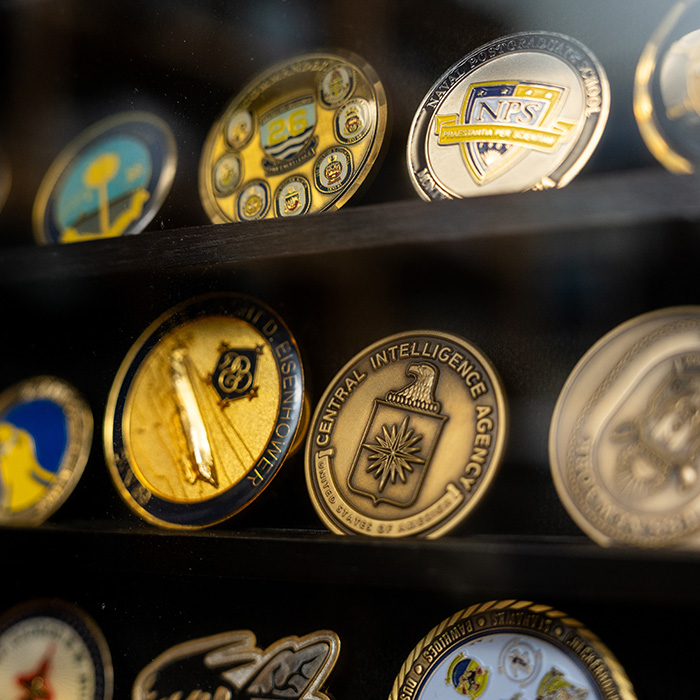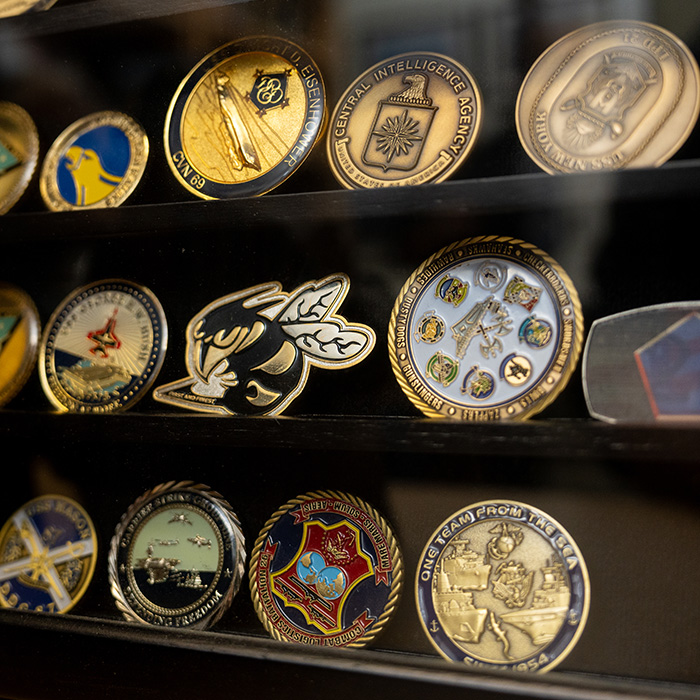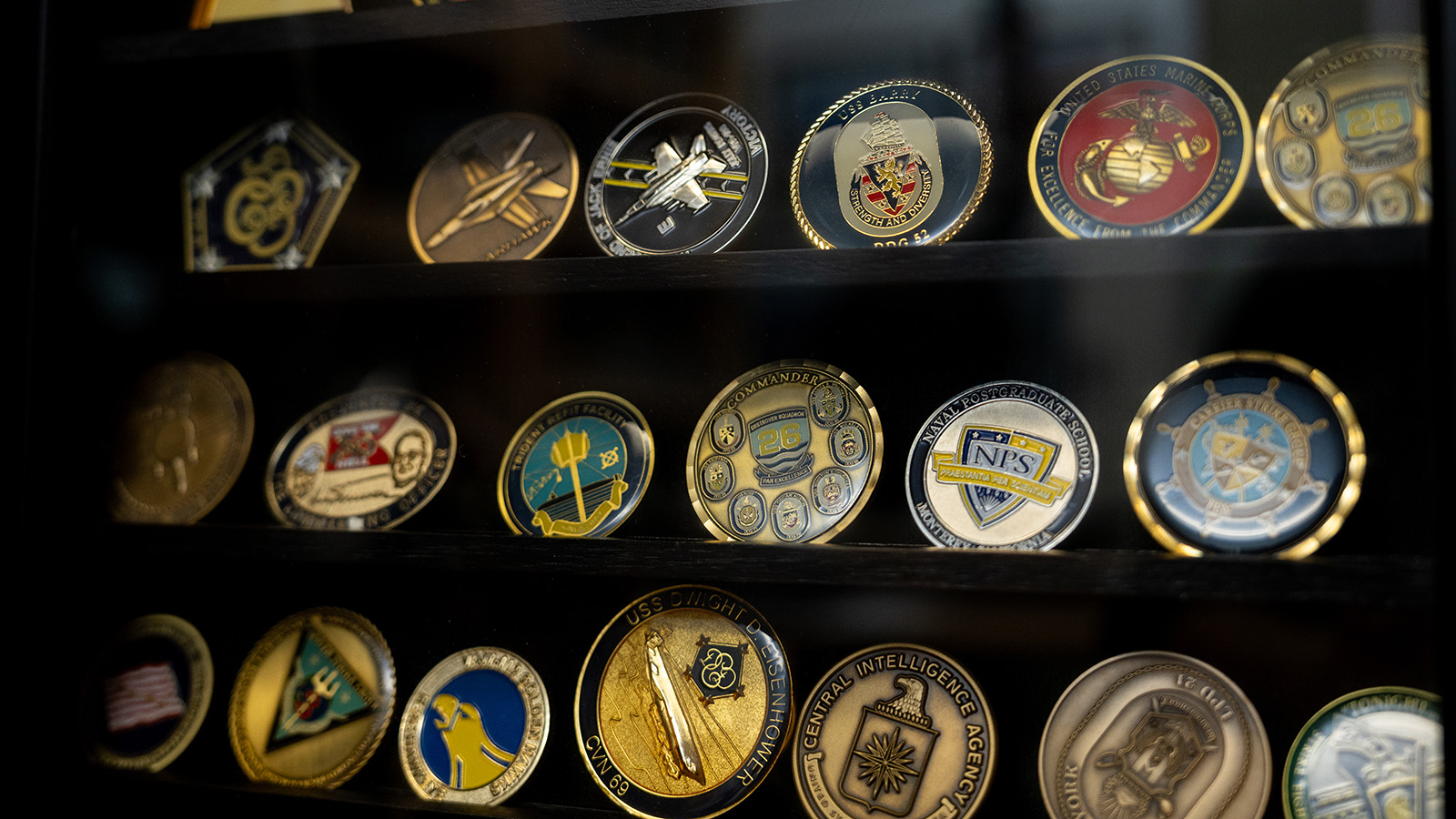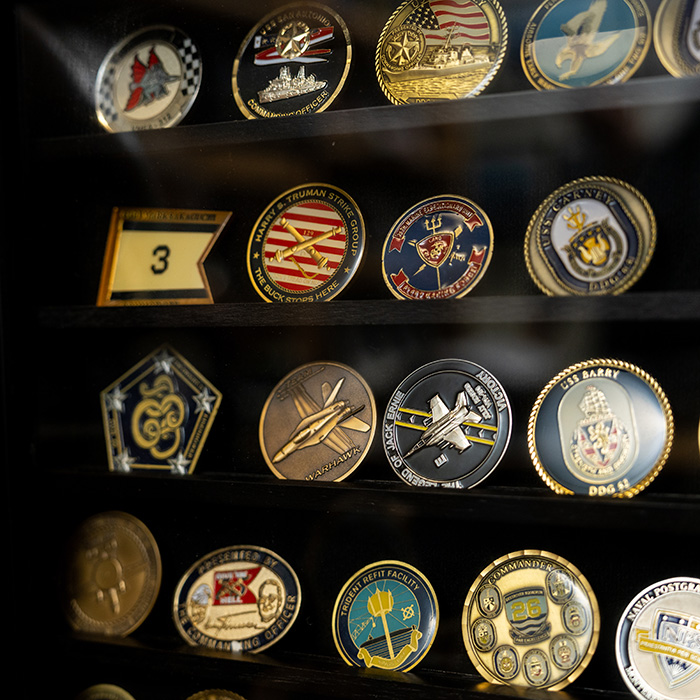Treasures
By Land and By Sea
Teaching has taken history professor Bob Rook all over the world.
Two rows of 15 navy-colored baseball caps line the tops of the bookshelves in TU history professor Bob Rook’s office. They represent 16 years of his life.
From 2007 to 2023, Rook advised the U.S. Navy on the history and political structure of several Middle Eastern countries in which the military had engagement areas. Each hat comes from one of the 30 ships he visited over the course of more than 25 missions.
Rook didn’t set out to become a teacher, but his nearly two decades of instruction has affected tens of thousands of lives.
After teaching in several U.S. states, he went overseas in the early 1990s, first to the American School in Tel Aviv, Israel, then to Cairo American College, a K–12 facility in Egypt’s capital.
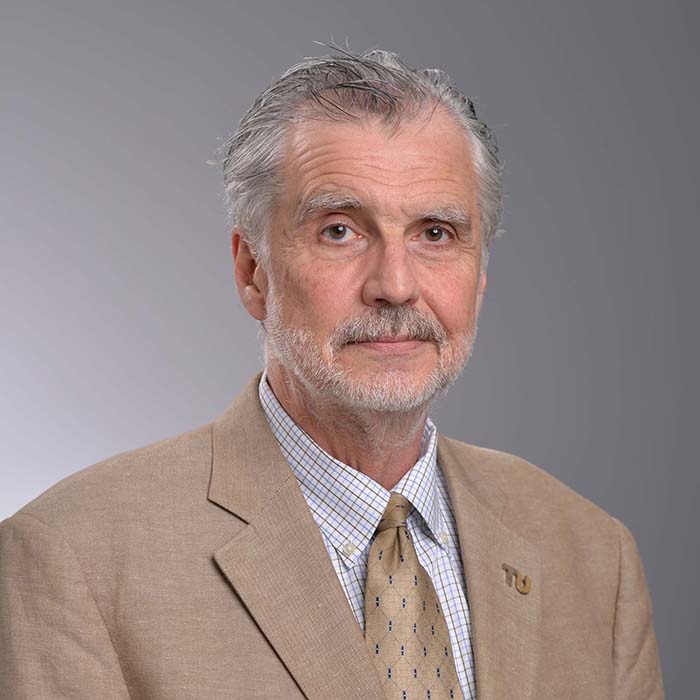
A combination of the desire to become a superintendent of an overseas school and the experience of befriending military members stationed in the Middle East during Operation Desert Storm sent Rook back to the U.S. to earn his doctoral degree.
“I developed an interest in military engineers,” he says. “My Ph.D. program specialized in military and diplomatic history because I was interested in how military engineers reimagined and re-engineered river valleys.”
He received his doctorate in 1996 and came to Towson in 2005 as the chair of the history department.
A New Teaching Experience
Just two years into his six-year tenure as chair, the U.S. Navy offered another teaching opportunity.
“The Navy had created the Regional Security Education Program (RSEP)—a cadre of regional experts who knew the Arab world, Israel, Iran,” Rook says. “Friends I’d met in Jordan who got jobs at the Naval Academy the same year I came to Towson recommended the Navy look at me.”
His responsibilities would involve deploying to sea for several weeks at a time to brief military brass on the nature of Israeli politics and strategy in the region, the nation’s relationships (or lack thereof) with the Arab states surrounding them and how that could affect Navy forces.
Rook wasn’t sure that he could manage both roles at once.
I had the full support of Towson University, from my dean all the way to the president.
Bob Rook, history professor
“I had the full support of Towson University, from my dean all the way to the president,” he says. “The university really went out of its way to support me when I’d be gone for two- and three-week stretches.”
“There’s an irony here in that I hate to fly. And I’m not really all that comfortable aboard ships any bigger than my kayak,” he says.
Rook describes his time aboard ship as “like another doctorate.” He credits sitting in on other experts’ briefings on countries such as China and Iran as being as important to his professional development as graduate school.
Despite his missions being “physically demanding and mentally and psycho-emotionally challenging,” what struck Rook the most was his interactions with the service members who weren’t always in the briefing room.
“I wish more Americans without military service had something of the experience I had,” he says. “That they could see how amazing the rank and file in the military are and the service that they render. The longest I was at sea was three weeks. But those folks were out from six to nine months. And it’s intense.”
Near the end of his tenure as a Navy consultant, Rook assumed yet another educator role.
“I was the head briefer, and I had to take people who were just college faculty like I am and very quickly bring them up to speed of how life is for the military,” he says. “Particularly onboard ship because of all these protocols, all these safety procedures that no one in their wildest imagination, least of all me, could have even begun to think about before it happened to me.”
I was the head briefer, and I had to take people who were just college faculty like I am and very quickly bring them up to speed of how life is for the military.
Bob Rook, history professor
Lessons from the RSEP
In 2023, he took his last official assignment with RSEP. But he says it’s been enormously helpful in terms of what he does at Towson with his students.
“The RSEP experience dramatically improved my teaching of military history,” says Rook. “It gave me a deeper understanding and awareness of military affairs aboard ship, across the fleet, inside the Pentagon and on any number of institutional bases. It made me a better military historian and my military history classes better learning experiences for my students.”
Rook rarely reflects on his time with RSEP, but when he does, he marvels at where it’s taken him.
“When I got my Ph.D., if you told me I would find myself making carrier landings and takeoffs as passenger or cargo, I would have said you’re crazy. It’s been a really strange, amazing ride and a phase of my life I consider myself supremely fortunate and blessed to have had the opportunity to experience.”
A Collection of Challenge Coins
Tucked in the back corner of Rook’s office is a shadow box displaying coins of varying shapes and sizes. Called challenge coins, their designs represent the military units who create them, and they are meant to be traded among military members.
“Part of the lore is that somebody gives you a challenge coin from their unit and, if you don’t have one to give back to them representing your unit, you owe them a drink,” he says. “Ship’s captains, squadron commanders, admirals, they would often give briefers a challenge coin as an expression of thanks for our service to them at that particular moment.”
Despite never having set foot on the Monterrey, California, campus of the Naval Postgraduate School, Rook was assigned there and took a supply of NPS challenge coins with him on each briefing mission.
View photos of some of the coins he received in return.
